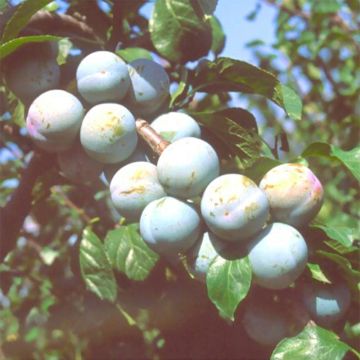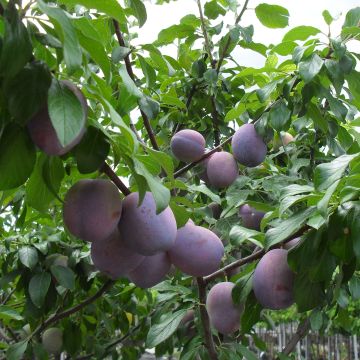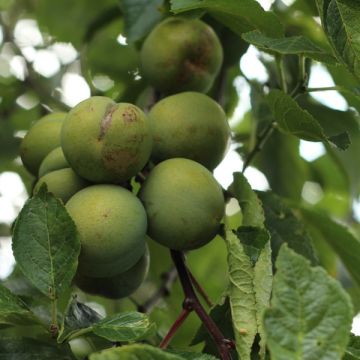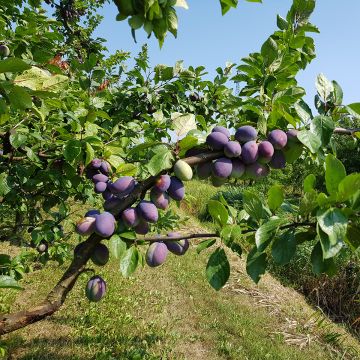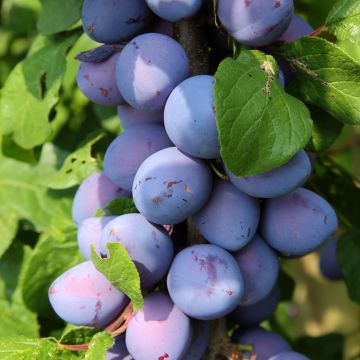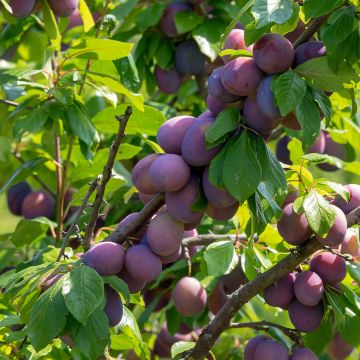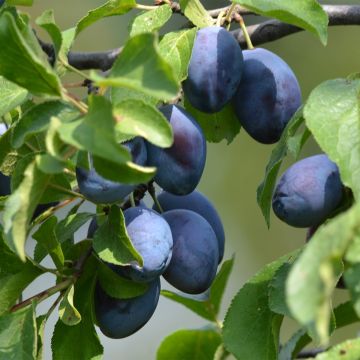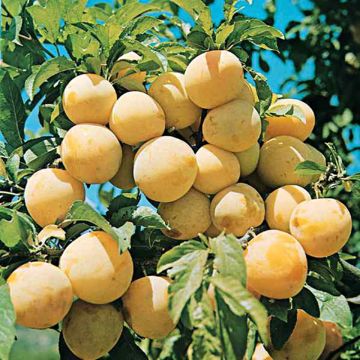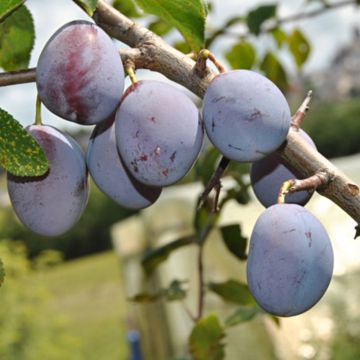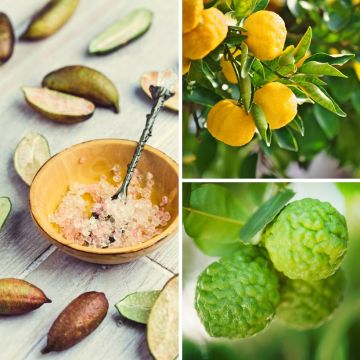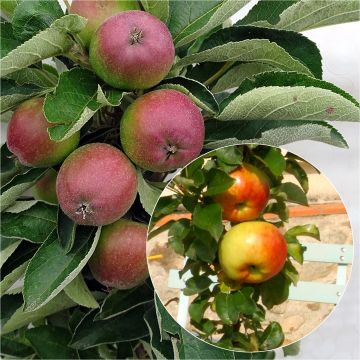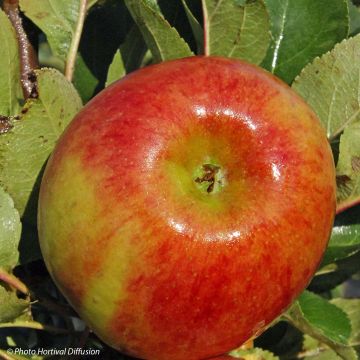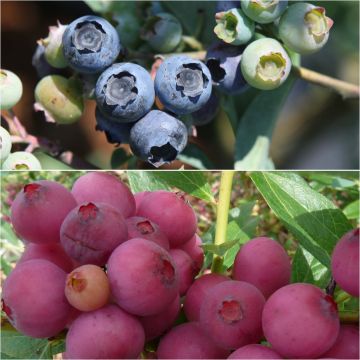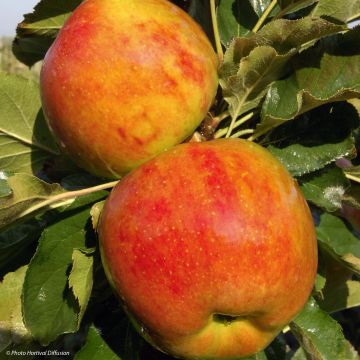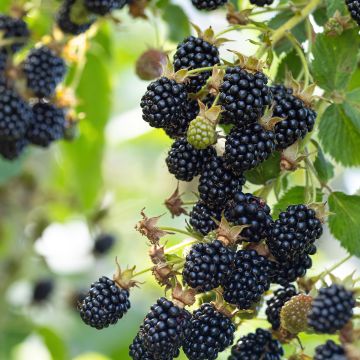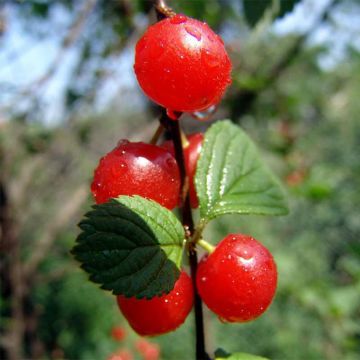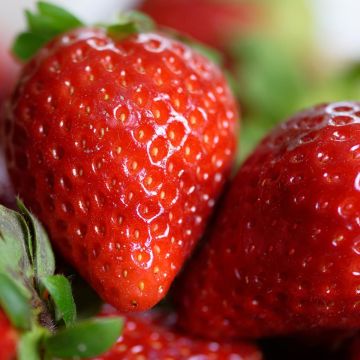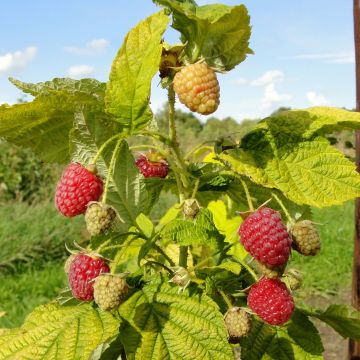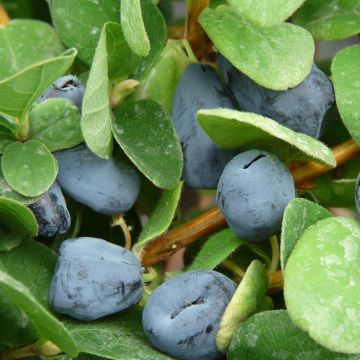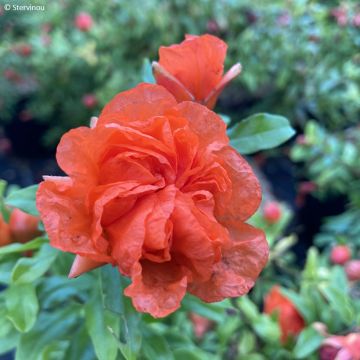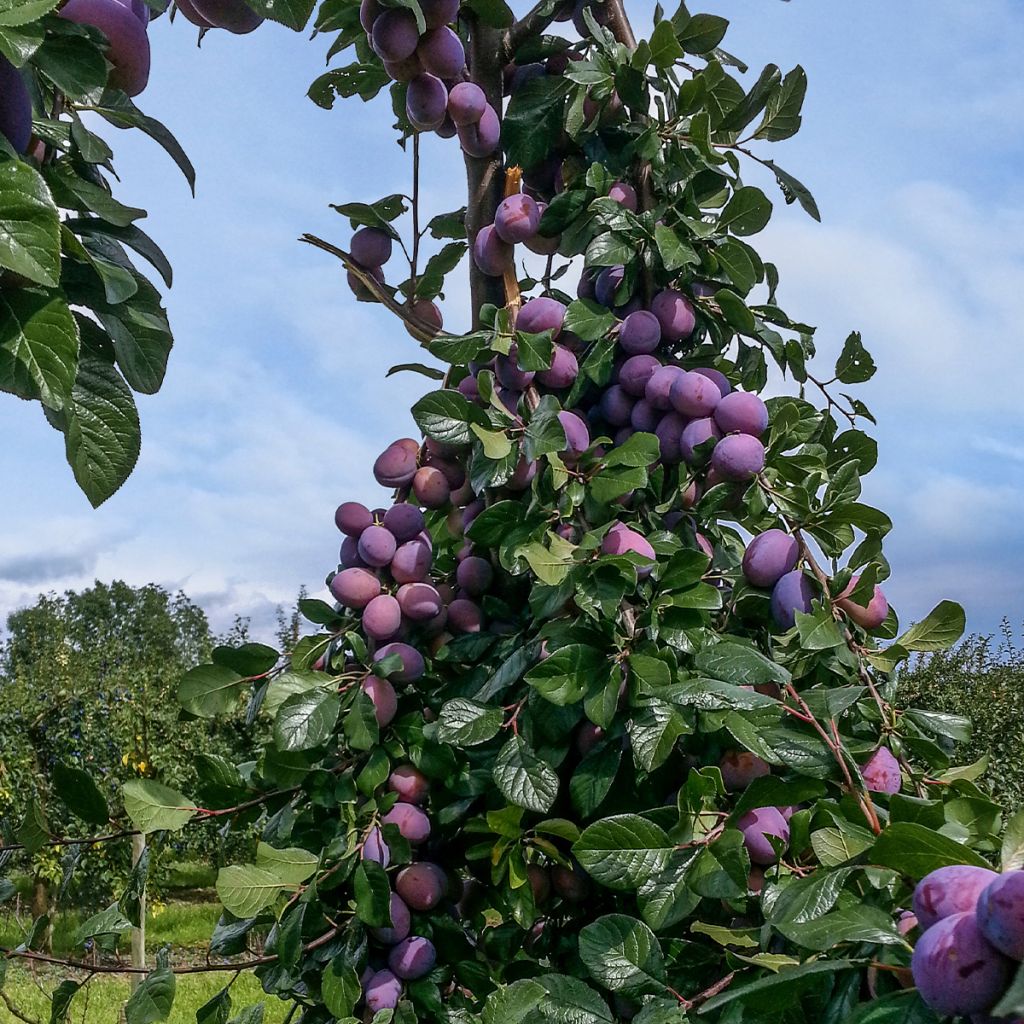

Prunus domestica Quetsche toronto - Common plum
Prunus domestica Quetsche toronto - Common plum
Prunus domestica Quetsche toronto
European plum, Common plum, Garden plum
Nice bush in good condition. Planted the same day, to be continued...
mbc, 29/10/2024
This item cannot be shipped to the selected country
Oversize package delivery charge from €6.90
Delivery to Corse prohibited
More information
Schedule delivery date,
and select date in basket
This plant carries a 6 months recovery warranty
More information
We guarantee the quality of our plants for a full growing cycle, and will replace at our expense any plant that fails to recover under normal climatic and planting conditions.
Oversize package: home delivery by special carrier from €6.90 per order..
Express home delivery from €8.90.
Delivery to Corse prohibited: UE law prohibits the import of this plant from mainland France to Corse as part of the fight against Xylella fastidiosa. Please accept our sincere apologies.
More information
Description
Prunus domestica 'Quetsche Toronto' is a recent variety that will interest owners of small gardens or even balconies or terrace gardens. This variety is indeed suitable for restricted spaces due to its perfect columnar habit, narrow and rarely exceeding 4m (13ft) in height. In April, it is covered with white flowers from top to bottom before producing beautiful dark blue plums in September. These plums are deliciously juicy and sweet and can be consumed fresh, in desserts, or for making jams. It should be grown in full sun in well-drained ordinary soil.
Plums belong to the vast Rosaceae family, to which most of our temperate climate fruit trees belong (apple trees, pear trees, apricot trees, peach trees, cherry trees, quince trees...) as well as small fruits (blackberries, raspberries, strawberries). The Prunus genus itself is extremely diverse, with over 300 species, including both fruit-bearing (almond trees, peach trees...) and ornamental species, such as many trees (Japanese cherry trees, flowering apple trees...) as well as shrubs like the widely spread Prunus laurocerasus, or Cherry Laurel. Prunus domestica is probably native to Asia Minor (Syria) and would have been introduced to Rome, along with many other species, following the Roman conquests. According to some authors, its introduction to Europe may be more closely linked to the Crusades, who really knows?
'Toronto' is a variety from Georges Delbard Nurseries, a well-known name in the history of rose and fruit tree breeding. Introduced to the market in 2016, it is part of a range of columnar fruit trees, including various genera such as apple, pear, cherry... This Plum tree reaches a height of 4m (13ft) while remaining very narrow, forming a green column that will fit perfectly in small gardens, or even in containers on a terrace or balcony. In fact, it only develops on its main axis, forming a green column when the leaves emerge. In April, it is covered with simple white flowers with 5 petals, from the top to the bottom of the vegetative column. This variety is self-fertile, but it still benefits from cross-pollination with another variety. The fertilized flowers develop into fleshy drupes that ripen in September. These plums have a beautiful dark blue, pruinose colour, and their yellow flesh is sweet. These fruits can be consumed fresh as soon as they are harvested and can also be used in tarts or jams. Fruit production usually begins 2 to 3 years after planting. Hardy down to -20°C, or even -25°C, this modern variety is not very susceptible to diseases. It grows in full sun, in well-drained ordinary soil, and can be grown in containers on a terrace or even a balcony due to its narrow lateral spread. It is not demanding and only requires pruning in July to remove the shoots that develop at the top in order to maintain a reasonable height.
If you appreciate these particular fruit forms, you can create a small collection with varieties such as the 'Villandry' Columnar Apple tree, the 'Sylvia' Columnar Cherry tree, or even the 'Diamond Zaipevi' Dwarf Peach tree. To improve the pollination of 'Toronto', you can plant the 'Quetsche Stanley' Plum tree nearby, provided you have enough space in the garden, as it is not a miniature tree!
Report an error about the product description
Prunus domestica Quetsche toronto - Common plum in pictures
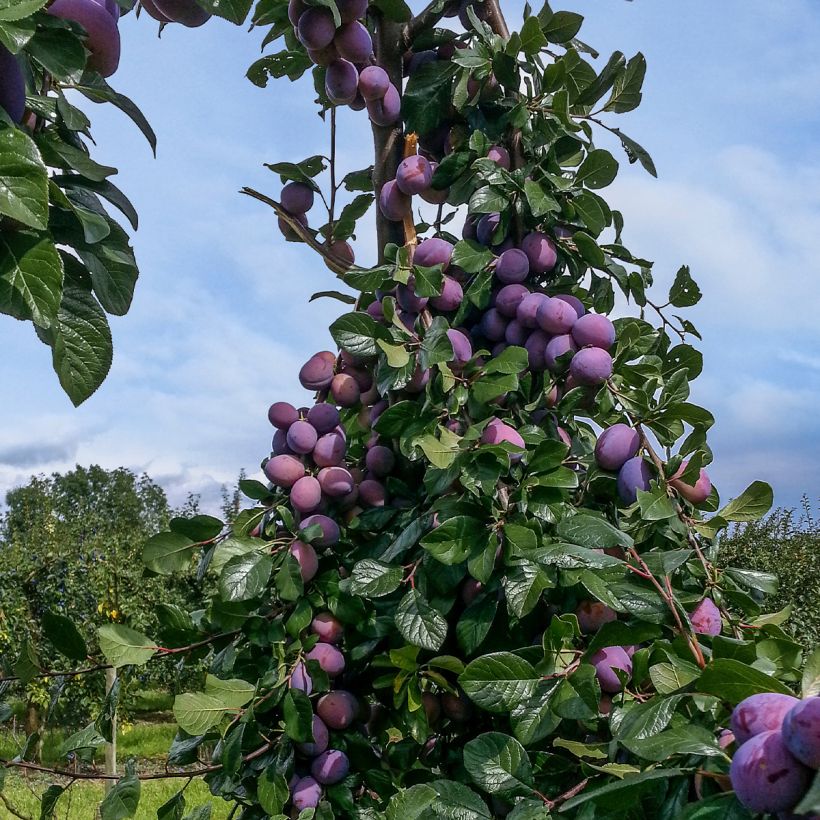

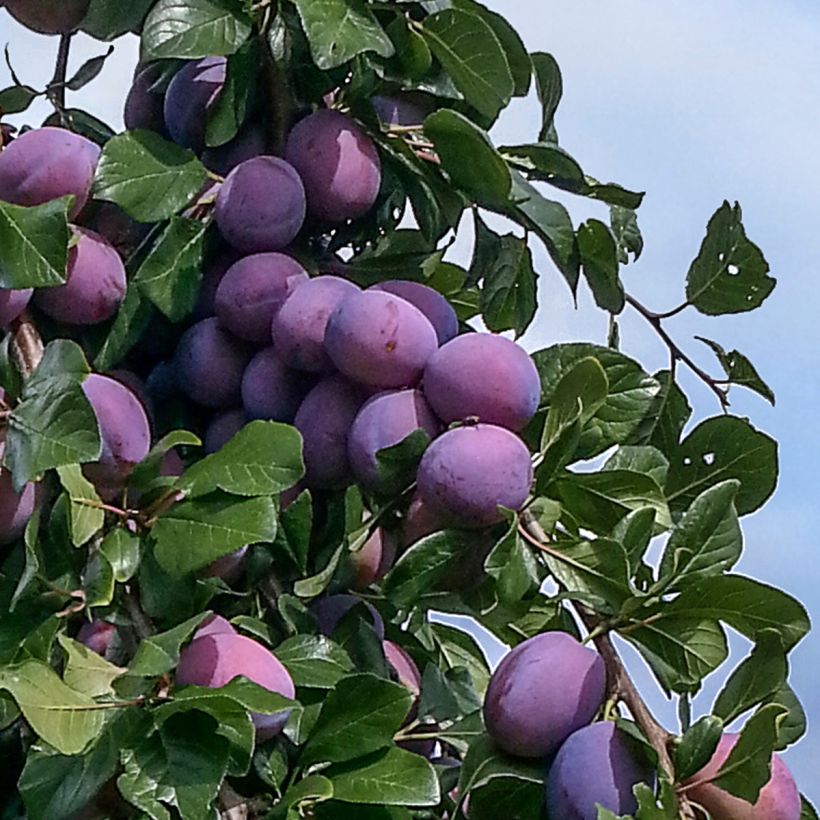

Plant habit
Fruit
Flowering
Foliage
Botanical data
Prunus
domestica
Quetsche toronto
Rosaceae
European plum, Common plum, Garden plum
Cultivar or hybrid
Other Plum Trees
Planting and care
Plum trees preferably grow in deep clay-limestone soil, but can adapt to other types of soil. On the other hand, it is quite demanding in terms of sunlight. Hardy, this 'Questche Toronto' variety can withstand temperatures as low as -20 °C, or even lower.
Dig a planting hole of at least 50cm (20in) on all sides and even more, as this tree likes deep soil. It also appreciates some humidity, so make sure to water it regularly in summer and autumn during the first few years. Once well rooted, it is a resilient and undemanding tree.
Due to its limited growth and columnar habit, this variety is also perfectly suited for container cultivation on a balcony. Choose a "double-skinned" container (with an insulating air layer) or a thick terracotta one to prevent overheating of the compost and roots in summer.
Planting period
Intended location
Care
-
, onOrder confirmed
Reply from on Promesse de fleurs
Fruit trees for small gardens
Haven't found what you were looking for?
Hardiness is the lowest winter temperature a plant can endure without suffering serious damage or even dying. However, hardiness is affected by location (a sheltered area, such as a patio), protection (winter cover) and soil type (hardiness is improved by well-drained soil).

Photo Sharing Terms & Conditions
In order to encourage gardeners to interact and share their experiences, Promesse de fleurs offers various media enabling content to be uploaded onto its Site - in particular via the ‘Photo sharing’ module.
The User agrees to refrain from:
- Posting any content that is illegal, prejudicial, insulting, racist, inciteful to hatred, revisionist, contrary to public decency, that infringes on privacy or on the privacy rights of third parties, in particular the publicity rights of persons and goods, intellectual property rights, or the right to privacy.
- Submitting content on behalf of a third party;
- Impersonate the identity of a third party and/or publish any personal information about a third party;
In general, the User undertakes to refrain from any unethical behaviour.
All Content (in particular text, comments, files, images, photos, videos, creative works, etc.), which may be subject to property or intellectual property rights, image or other private rights, shall remain the property of the User, subject to the limited rights granted by the terms of the licence granted by Promesse de fleurs as stated below. Users are at liberty to publish or not to publish such Content on the Site, notably via the ‘Photo Sharing’ facility, and accept that this Content shall be made public and freely accessible, notably on the Internet.
Users further acknowledge, undertake to have ,and guarantee that they hold all necessary rights and permissions to publish such material on the Site, in particular with regard to the legislation in force pertaining to any privacy, property, intellectual property, image, or contractual rights, or rights of any other nature. By publishing such Content on the Site, Users acknowledge accepting full liability as publishers of the Content within the meaning of the law, and grant Promesse de fleurs, free of charge, an inclusive, worldwide licence for the said Content for the entire duration of its publication, including all reproduction, representation, up/downloading, displaying, performing, transmission, and storage rights.
Users also grant permission for their name to be linked to the Content and accept that this link may not always be made available.
By engaging in posting material, Users consent to their Content becoming automatically accessible on the Internet, in particular on other sites and/or blogs and/or web pages of the Promesse de fleurs site, including in particular social pages and the Promesse de fleurs catalogue.
Users may secure the removal of entrusted content free of charge by issuing a simple request via our contact form.
The flowering period indicated on our website applies to countries and regions located in USDA zone 8 (France, the United Kingdom, Ireland, the Netherlands, etc.)
It will vary according to where you live:
- In zones 9 to 10 (Italy, Spain, Greece, etc.), flowering will occur about 2 to 4 weeks earlier.
- In zones 6 to 7 (Germany, Poland, Slovenia, and lower mountainous regions), flowering will be delayed by 2 to 3 weeks.
- In zone 5 (Central Europe, Scandinavia), blooming will be delayed by 3 to 5 weeks.
In temperate climates, pruning of spring-flowering shrubs (forsythia, spireas, etc.) should be done just after flowering.
Pruning of summer-flowering shrubs (Indian Lilac, Perovskia, etc.) can be done in winter or spring.
In cold regions as well as with frost-sensitive plants, avoid pruning too early when severe frosts may still occur.
The planting period indicated on our website applies to countries and regions located in USDA zone 8 (France, United Kingdom, Ireland, Netherlands).
It will vary according to where you live:
- In Mediterranean zones (Marseille, Madrid, Milan, etc.), autumn and winter are the best planting periods.
- In continental zones (Strasbourg, Munich, Vienna, etc.), delay planting by 2 to 3 weeks in spring and bring it forward by 2 to 4 weeks in autumn.
- In mountainous regions (the Alps, Pyrenees, Carpathians, etc.), it is best to plant in late spring (May-June) or late summer (August-September).
The harvesting period indicated on our website applies to countries and regions in USDA zone 8 (France, England, Ireland, the Netherlands).
In colder areas (Scandinavia, Poland, Austria...) fruit and vegetable harvests are likely to be delayed by 3-4 weeks.
In warmer areas (Italy, Spain, Greece, etc.), harvesting will probably take place earlier, depending on weather conditions.
The sowing periods indicated on our website apply to countries and regions within USDA Zone 8 (France, UK, Ireland, Netherlands).
In colder areas (Scandinavia, Poland, Austria...), delay any outdoor sowing by 3-4 weeks, or sow under glass.
In warmer climes (Italy, Spain, Greece, etc.), bring outdoor sowing forward by a few weeks.

































